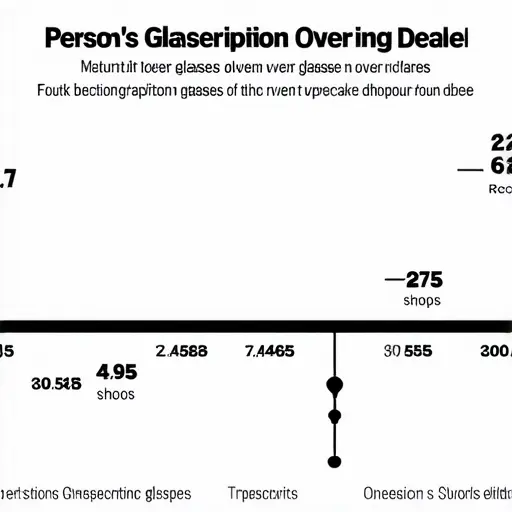A program so powerful, it’s designed to improve perfect eye health and give anyone who uses it crystal clear 20/20 vision in a matter of weeks.
Nearsighted Vision Improves With Age: 5 Facts You Should Know

Does Nearsightedness Get Better With Age? The Surprising Truth
If you've spent most of your life squinting at street signs or feeling lost without your glasses, you might be wondering: could my nearsightedness actually improve as I get older? The answer might surprise you. While your eyes don't exactly "heal" from myopia, many people do experience noticeable changes in their vision as they age. Let's dive into why this happens and what it means for your eye health.
Myopia 101: Why Faraway Things Look Fuzzy
Nearsightedness isn't just about weak eyes - it's actually a physical change in your eye's shape. When your eyeball grows too long or your cornea gets too steep, light rays focus in front of your retina instead of directly on it. That's why the restaurant menu in your hands looks crisp, but the sign across the street is just a colorful blur.
The Aging Eye: Nature's Unexpected Trade-off
Here's where things get interesting. Around age 40, most of us start developing presbyopia - that frustrating condition where you suddenly need reading glasses. But if you're nearsighted, there's a silver lining. As your eye's lens hardens with age (causing presbyopia), it can actually compensate for some of your myopia. Suddenly, you might find you can read your phone without glasses, even though you still need them to drive.
Why This Matters for Your Eye Health
Understanding these changes helps you make smarter choices about your vision care. Instead of wondering if your eyes are playing tricks on you, you'll know what's normal and when it's time to see your eye doctor about these shifts.
Do THIS 7-Second Trick Tonight, Restore Perfect 20/20 Vision Tomorrow

VisiSoothe - Vision Breakthrough
Watch free special videoThe Science Behind Age-Related Vision Changes
It might seem strange that aging - which we usually associate with vision getting worse - could actually help nearsighted people in some ways. But research backs this up.
Your Eyes' Natural Balancing Act
Think of it like this: presbyopia and myopia are like two sides of a seesaw. As presbyopia increases with age, it can partially "cancel out" your nearsightedness for close-up tasks. That -3.00 prescription that had you dependent on glasses? It might not feel as strong when reading a book, though you'll still need help seeing that exit sign down the hallway.
What the Research Shows
Studies have found that about 1 in 5 adults over 60 experience measurable decreases in their myopia. Some researchers believe subtle changes in our eyes' shape and structure might contribute to this shift. But remember - everyone's eyes age differently.
Busting Myths About Aging and Nearsightedness
Let's clear up some common misunderstandings about vision and aging.
The Natural Ultra Absorbable Dropper That Supports Strong Vision

Inside every drop of "EyeFortin" you'll find: A perfectly dosed proprietary blend of selected plants and minerals, carefully mixed to complement one another into a powerful vision supporting formula.
Learn more"My Vision's Getting Better - I Can Toss My Glasses!"
Not so fast. While you might need your glasses less for certain tasks, most people don't outgrow them completely. You might just graduate from single-vision lenses to progressives instead.
"If My Nearsightedness Improves, My Eyes Are Healthy"
Vision changes can sometimes signal other eye conditions. That's why regular check-ups are crucial - what feels like improving myopia could actually be early cataracts changing your prescription.
What Determines If Your Vision Will Change?
Wondering if you'll be one of the lucky ones? These factors play a role:
- Your genes: Like most things, family history matters
- Your daily habits: Heavy screen users might notice different changes
- Overall eye health: Conditions like diabetes can affect these changes
Signs Your Nearsightedness Might Be Shifting
How can you tell if your eyes are making these natural adjustments? Watch for:
- Suddenly being able to read texts without your glasses (even if the TV is still fuzzy)
- Your eye doctor prescribing weaker lenses during exams
- Fewer headaches after reading or computer work
Pro tip: Any sudden vision change deserves a doctor's visit - better safe than sorry!
Living With Changing Vision
Adapting to these shifts doesn't have to be frustrating. Try these strategies:
- Embrace the check-up: Annual eye exams catch changes early
- Upgrade your specs: Progressive lenses might become your new best friend
- Baby those eyes: More breaks from screens, more leafy greens, and always sunglasses outside
The Bottom Line
While aging brings its share of challenges, many nearsighted people find some unexpected vision perks along the way. The key is staying informed, getting regular check-ups, and being open to adjusting your vision care as needed. After all, our eyes are always telling us new stories - we just need to learn how to listen.
Remember:
- Presbyopia can help balance out nearsightedness for close work
- Changes happen gradually and differently for everyone
- Your eye doctor is your partner in navigating these shifts
Have you noticed your nearsightedness changing as you've gotten older? We'd love to hear about your experience in the comments!










